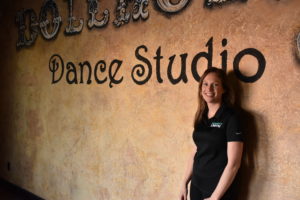
B-Real, one of the lead rappers for hip-hop group Cypress Hill, has a cannabis brand called Dr. Greenthumb that is exploring the burgeoning recreational pot market for Fresno. Photo contributed.
Written by Frank Lopez
It’s been more than two years since the Fresno City Council adopted the Cannabis Retail Business and Commercial Cannabis Business Ordinance, which allowed cannabis dispensaries to operate in Fresno.
Since then, a number of cannabis companies and brands have shown keen interest in Fresno and its emerging recreational cannabis market — one of the largest still open in California.
Applications for cannabis business licenses from the City of Fresno became available in September 2020 with local and out-of-area companies applying for the 14 licenses.
The first licenses are expected to be issued in the first quarter of this year.
The Business Journal has covered Fresno’s retail cannabis licensure process and some of companies vying for a piece of the new market. Now we want to take a deeper look at the actors in the industry and the ways they move the gears to open in a new market.
We spoke with cannabis industry public relations experts along with cannabis companies and brands to gain insight on how people in the industry get a community to open up to cannabis.
The PR veteran
Marylyn Simpson, public relations director with Beverly Hills based firm Kip Morrison & Associates, has been working in the public relations industry since 2014.
Simpson is working with a number of cannabis companies that are already operating in the Central Valley and vying for a license in Fresno.
When Simpson first started in 2014, the public relations firm mostly worked with lifestyle, beauty and fashion clients. That is until her boss’s son, Kenny Morrison, the founder of edible cannabis food producer Venice Cookie Co., suggested the firm get into cannabis PR because it was going to explode and not many were doing it.
“I was the only one in the office at the time who was willing to take on cannabis clients,” Simpson said. “A lot of people told me that this was going to be career suicide — something that I would never be able to talk about or talk about my work experience because I seemed like a drug dealer. I stuck with it, and it’s almost seven years later and here we are.”
As the cannabis industry went from the medical side to recreational, and the stigma of cannabis waned and became more acceptable to the business community, Simpson felt she was ahead of the game with a full book of clients while other publicists were still learning.
Simpson said one of the first things a company looking to open in a new market such as Fresno does is assess the market, and do as much research about the region — this includes research on targeted demographics.

An important part of the application process involves how a company will give back to the community. Simpson has clients that donate to charities and are constantly finding ways to give back and team up with local community organizations.
Though companies do try to appeal to certain demographics, Simpson said that PR firms are also trying to pique the interests of new customers.
“When it comes to PR we go after mainstream press. We are trying to find ways to appeal to people that are curious, or haven’t really given it much thought. Seeing cannabis in a different light in different publications piques the average person’s interest,” Simpson said.
Rapper’s delight
A client of Simpson’s is B-Real, one of the lead rappers for hip-hop group Cypress Hill. He is a longtime advocate for the marijuana lifestyle and culture through his music, and he is also on the business end of cannabis.
B-Real’s brand, Dr. Greenthumb, has dispensaries up and down the state, and its products are found in storefronts all over California.
There are six Dr. Greenthumb dispensaries operating in the state.
The rapper and cannabis businessman was involved in the industry before it was legal, and has worked with local governments and communities to be able to operate in different markets all over the state.
“A lot of us operated in the black market, and it’s a transition we have to get used to. Transitioning from that sort of culture and trying to do legitimate business and make legitimate brands — there is a process,” B-Real said in an interview with The Business Journal. “There was a lot we had to go through to get our licenses, get cultivation properly licensed and compliant.”
“It’s a lot,” he added. “But in the end, it’s a great business.”
B-Real said that he and his team are constantly looking at new markets, becoming part of the application process and showing a community that the business will be profitable for the area.
The team is careful to not oversaturate the market with the Dr. Greenthumb brand. He targets areas where he knows the business will perform strongly, and then creates awareness of the intention to open.
A big part of the application process is showing the community and city officials how a dispensary can give back to the community, and that involves presenting them with business plans.
B-Real said that Fresno is definitely on the list for consideration for markets to open up in in the future.
“You make city officials feel at ease that they know that the investment that they are putting in you in terms of giving you a license to operate is in good hands. They want to see a proper plan and how you will give back to the city,” B-Real said.
A Perfect Union education
Perfect Union, a vertically integrated cannabis retail operation based in Sacramento with eight dispensaries in California, also has a pending retail storefront application with the city.
The proposed location is in Fresno at 45 E. Minarets Ave., in the former Doll House dance studio.
Plans for the dispensary include 2,000 square feet of commercial space and 14 parking spaces, which is ideal for storefront dispensaries.
Caity Maple, vice president, government affairs and compliance at Perfect Union, said that once open, the dispensary would create 20 to 25 well-paying jobs that include benefits.
Perfect Union already has a store in Turlock and is looking to expand in other areas in the Central Valley.
Maple said that Perfect Union doesn’t necessarily go for the biggest markets, but sometimes smaller, more conservative communities where they can educate the community about cannabis and build trust.

The company doesn’t want to go to bigger markets that are flooded with competition, but would rather make a big splash in a smaller community.
While Maple realizes it is important for communities to have a local stake in the market, she stresses the importance of experience in the industry.
“We think that people should value experience. We are one of the oldest licensed cannabis companies in California — we’ve been here for 10 years. We know how it works,” Maple said.
Between the costs of acquiring a building, renovation, licensing, permitting and compliance, etc., Maple said it costs about a $1 million just to open a cannabis dispensary.
A big part of Maple’s job is identifying the issues most pressing to a certain community. This involves heavy research and connecting with city council members and boards of supervisors to see where the company could focus its energy.
Talks with neighboring business owners and people living in the area to see what issues are important to them are also part of the process, Maple said.
Perfect Union has already donated money to three different charitable organizations already, including the Poverello House and Fresno Barrios Unidos.
When Maple first worked as a lobbyist for Perfect Union, she said it was hard to find people to talk to her about the industry. Now, there are politicians and lobbyists with teams that specifically deal with cannabis issues.
She became an executive with the company around two years ago.
This change in attitudes now motivates Maple to do a lot of education about the crop.
“In places like Fresno, it’s an interesting political dynamic, because even though it’s a big city, there is a very conservative nature that you don’t see in places like LA and San Francisco. Being able to educate people on what cannabis is, and isn’t, is important. When I talk to city council people — it’s just an education campaign.”







